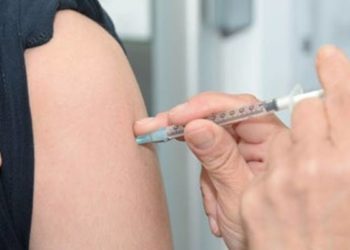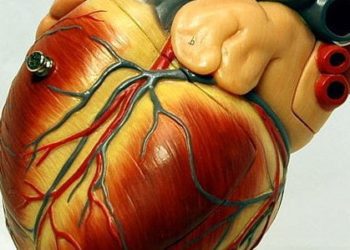AAP guidelines for pneumococcal vaccination in high-risk groups released
1. The AAP continues to recommend PPSV23 vaccination in children at high risk for invasive pneumococcal disease (IPD).
2. New guidelines suggest that children ages 6 to 18 with high risk for IPD additionally receive PCV13 if not previously immunized with this conjugate vaccine during early childhood.
Evidence Rating Level: 1 (Excellent)
Study Rundown: Despite reduction in Streptococcal pneumoniae disease burden with the routine use of pneumococcal conjugate vaccines, IPD still continues to cause significant morbidity and mortality in the pediatric population. This AAP Policy Statement serves to update guidelines for pneumococcal vaccination in children ages 6 through 18 with conditions that place them at greater risk for IPD. Such conditions include immunocompromised states (HIV, congenital immunodeficiency, etc), asplenia, sickle cell disease, cerebrospinal fluid leaks, or cochlear implants. Children with chronic disease (lung, heart, diabetes, etc) are additionally at higher risk of IPD. Vaccinations included in these guidelines are the 13-valent PCV13 (4 doses before 18 months currently recommended in all children) and the extended 23-valent PPSV23 (currently only recommended in high risk pediatric groups). For children ages 6 through 18 years, the AAP continues to recommend 1 dose of PPSV23 to children with cerebrospinal fluid leaks or cochlear implants and 2 doses of PPSV23 given 5 years apart to children with immunocompromised states, asplenia, or sickle cell disease. The new aspect of these updated guidelines suggests that children receiving PPSV23 who have not previously received PCV13 during early childhood should now receive a single PCV13 dose. Immunocompetent children with chronic disease (chronic lung disease, heart disease, diabetes, etc) may additionally be considered for the PCV13 vaccine if not previously vaccinated. This recommendation comes from evidence that such administration is safe and that it will provide broader protection for high risk children against IPD.
Click to read the policy statement in Pediatrics
Relevant Reading: Decline in Invasive Pneumococcal Disease after the Introduction of Protein-Polysaccharide Conjugate Vaccine
More from this author: Majority of obese tenth-graders already obese by fifth grade, New AAP guidelines against albuterol for bronchiolitis, Continuous albuterol thought to be safe in floor setting, Study suggests twice as many antimicrobials prescribed than needed, MMR vaccination intentions higher with direct benefit education
Image: PD
©2014 2 Minute Medicine, Inc. All rights reserved. No works may be reproduced without expressed written consent from 2 Minute Medicine, Inc. No article should be construed as medical advice and is not intended as such by the authors, editors, staff or by 2 Minute Medicine, Inc.








